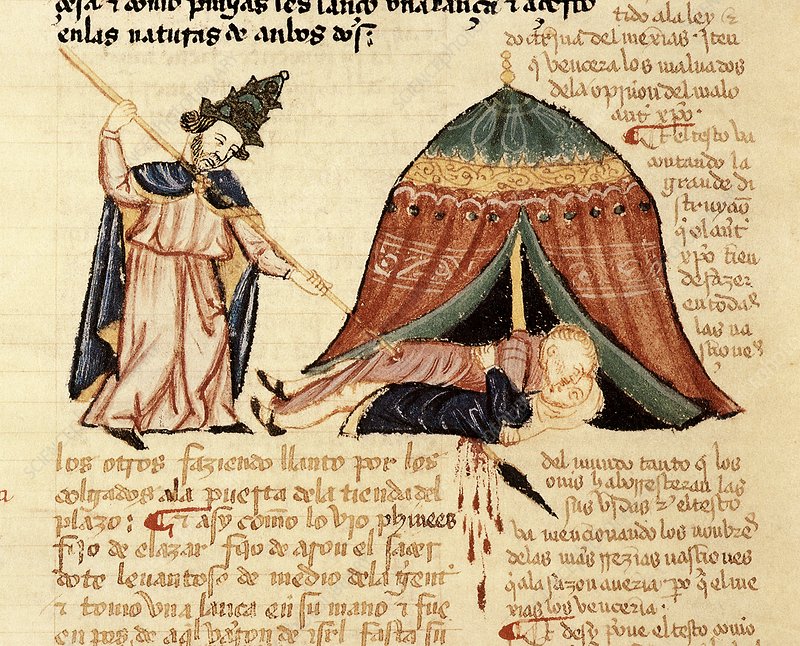Strictly speaking, chaplaincy began in the pagan world and in all likelihood was brought into Christianity by Roman Christian patrons; this early history shall be explored in a future article.
That said, we can examine two analogous examples from the Bible: the unnamed Levite from Judges 17-18 and Pinchas (also known as Phinehas) from Numbers 25. Both Levites ministered to the secular world: the unnamed Levite as a hired minister, and Pinchas by his own conviction.
The Levite of Judges 17-18 resembles a chaplain in that he serves as a private minister to his patron, Micah. (Levites served not only in the Jerusalem Temple–which at the time of Judges did not exist–but also in the midst of the tribal territories of Israel.) The unnamed Levite reflects a negative type, coming off as flaky. [1] Weak in relation to the other characters, he defaults to a passive stance. He appears to be a people-pleaser, but he is disloyal, easily swayed by those with him. As with men, the Levite is not faithful to God, even though he is a priest of YHWH.
Pinchas, on the other hand, acts unilaterally, executing two people who brought a plague upon Israel by their sin. With the same violent zeal of Levi his ancestor, he “rose up from the midst of the congregation” to administer justice. In doing so, he stopped the sin and returned God’s favor to Israel, and God blessed him with an eternal priesthood. Pinchas should be seen as a paragon of a Levite.
These characters are not chaplains, but their stories demonstrate that the Bible cares about extensive ministry in the secular realm outside of Tabernacle/Temple service.
[1] David Z. Moster, “The Levite of Judges 17-18,” Journal of Biblical Literature, Vol. 133, No. 4 (Winter 2014), pp. 729-737.


Leave a Reply